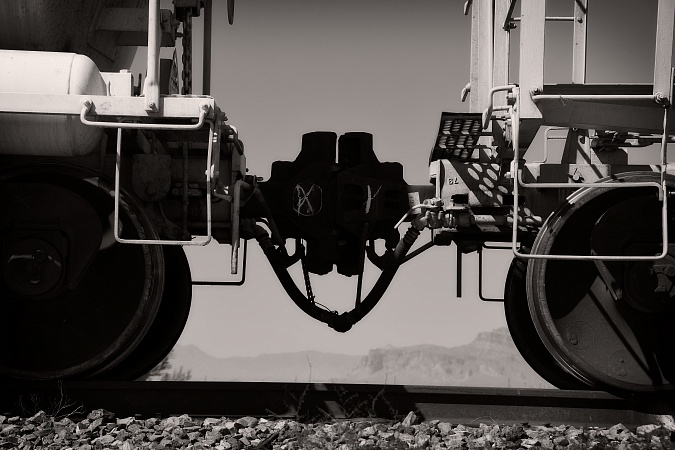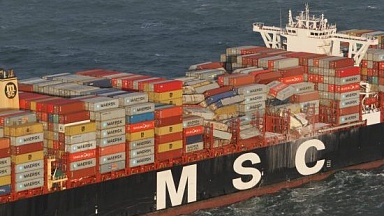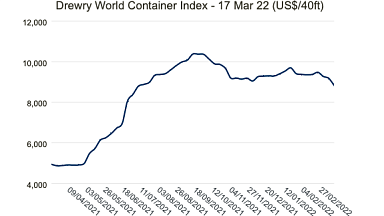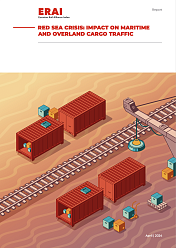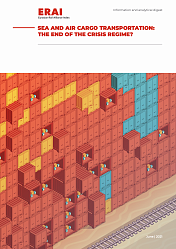The UK government is preparing to relax ‘cabotage’ rules in order to relieve the current acute lorry driver crisis by allowing European hauliers greater freedom to operate within Great Britain (GB) after completing a Europe-GB international freight delivery.
After the UK government’s botched attempt last month to belatedly relax visa rules for a limited number of EU hauliers failed to attract significant interest, the UK government today proposed «a possible temporary unilateral legislative extension of road haulage cabotage in order to alleviate pressures in the supply chain associated with the current shortage in lorry drivers».
Cabotage, the transport of goods or passengers between two places in the same country by a transport operator from another country for the purposes of hire and reward, is heavily restricted in the UK and abroad. The proposal is to allow unlimited cabotage movements of heavy goods vehicles for up to 14 days after arriving on a laden international journey into the UK, compared to the current rights of 2 cabotage journeys within 7 days of entry. It is proposed that the extension this will apply until for 3 or 6 months, subject to ongoing review and that it would not be transport sector specific.
«We are seeking evidence and views about allowing non-UK operators temporary extra cabotage rights within Great Britain for a short period of time, to support supply chains within the UK,» the government said, announcing a seven-day consultation period from 14 to 21 October 2021.
Consultation paper
The government’s consultation paper also seeks views and evidence about: Should the extension be limited to certain types of transport (for example, of food, port-related or more generally) and, if so, what types? How long extra cabotage rights should be allowed and, in particular, should they last for 3 months or 6 months. And should the extent of the cabotage rights be unlimited trips in 14 days as proposed, or should the extension be limited to a doubling of the current EU access — that is 4 trips in 7 days — but potentially expanded to allow all non-UK operators to work in this way?
«Whichever approach is taken, the firm intention is that this extension of rights would be confined to a limited period,» the UK stressed
Cabotage rights currently
The UK stressed that existing cabotrage rights would «continue before, alongside and after any additional temporary rights». Currently, the UK allows EU heavy goods vehicle operators rights to undertake up to 2 laden transports within 7 days of a laden entry on an international transport into the UK. This is in accordance with the UK/EU Trade and Co-operation Agreement, the so-called UK-EU ‘Brexit deal’.
«The UK’s bilateral road transport agreements with other countries provide good access rights for international transports by operators based in wider Europe and also some countries just beyond,» the UK said. «They do not provide anything beyond very limited cabotage rights.
«The European Conference of Ministers of Transport (ECMT) system allows international transport using a fixed quota of permits within a 43 state system including the UK and nearly all of geographical Europe, but it does not permit any cabotage rights. An extension of cabotage rights may be applied to operators from EU member states, and those from countries outside of this group, for example, Russia or Turkey.»
The UK added: «If so, in particular, it is anticipated that any extension will particularly benefit operators from both Norway and Switzerland as currently there are virtually no existing cabotage rights for operators (who follow EU standards) from these countries and they can access the UK through the EU easily. In comparison, some EU member states rules in practice constrain the access of other third country operators to the UK.»
Background
The UK government belatedly acknowledged that «over the past recent months, shortages in lorry drivers have been associated with acute problems with the distribution of food and other essential goods and there have now been representations to allow increased levels of cabotage. These would be mechanisms to improve the supply of fresh food and other essential goods within the UK and to help to resolve problems in the UK as a result of lorry driver shortages.»
These representations include a letter to the Prime Minister from 31 Netherlands-based haulage operators, the UK said.
Before the pandemic, and while the UK was a member of the EU, cabotage comprised about 0.8% of national UK transports, equivalent to the work of around 3,000 permanent lorry drivers in the country.
«As cabotage was restricted to 3 movements at this time, it is anticipated that if a short-term extension is pursued (depending on the exact form), this may offer a similar uplift in the number of drivers available, although there is substantial uncertainty about take-up,» the UK said.
«Since March 2020, coronavirus (COVID-19), testing restrictions and other short-term factors have affected the ability to undertake cabotage, but testing has become routine and operations have adapted. Qualitative feedback indicates cabotage is concentrated on long-distance movements and that, currently, recruitment and retention for these driving roles (with overnight stays away from home for UK drivers) is particularly difficult.»
It noted that some sectors — such as fuel transport and parts of construction — are not suitable for cabotage work «including, because of commercial considerations, how international transport is undertaken and requirements for specialised vehicles. However, the food supply chain and transports related to ports are in many cases suitable for cabotage operations.»
In the past, due to the restrictions on the number of movements that could be undertaken, non-UK operations maximised efficiency for international transport with the help of cabotage rights, the UK noted, adding: «It is expected that if an extension of cabotage rights were introduced, that this would be attractive from a business perspective to some of them.
«However, frictions in the market, such as having existing contracts to fulfil, could prevent overseas operators from moving quickly to take up cabotage movements within the UK. The wider shortages of drivers in the EU may also restrict the number of operators who have the capacity to also serve the UK market in larger numbers, even if an extension of rights is implemented.»
This consultation «seeks evidence and information about the potential effects of the extension of cabotage rights, including take-up».
Wider issues
This proposed intervention is «a short-term measure with the objective of increasing resilience in key supply chains. It does not diminish the importance of developing a larger and more diverse domestic workforce, increased retention rates and recruitment,» the UK stressed.
«There is significant pay pressure in the domestic road haulage and these temporary cabotage rights are unlikely to adversely affect pay and conditions in the UK.»
But the government said it was «worth noting that allowing more cabotage is liable to lead to more non-UK lorries parking overnight at service stops or in laybys and similar informal locations. Some non-UK firms have partners in the UK who would accommodate lorries in depots overnight, but this provision is by no means universal.»
The UK noted that this proposed change «would also mark a departure from the principle of reciprocity — equal rights on both parties in an agreement — as UK-based hauliers would gain no more rights as a result of this move. This includes in the context of the EU. Operators based outside the EU (for example, from Belarus, Morocco, Norway, Russia, Serbia, Switzerland, Turkey or Ukraine), although present in the UK in low volumes, would gain disproportionately high rights per lorry present.»
But despite numerous calls for months from the UK’s Road Haulage Association (RHA) for measures to tackle the UK’s lorry driver shortage, the RHA reacted strongly against the new cabotage proposals.
The RHA today said it was «shocked and disappointed by the government proposal to allow foreign haulage companies to undertake unlimited work in the UK in two-week blocks. The RHA opposes this proposal because we believe more effective measures can be taken to deal with the shortage of lorry drivers and the supply chain crisis in the UK.»
It continued: «In simple terms, cabotage allows non-UK haulage companies to work in the UK while being based outside the UK. The companies and employees will pay no tax in the UK. This is not about drivers from outside the UK working for UK companies — this proposal outsources the whole haulage activity — tax, safety regulation, national insurance obligations are all controlled outside the UK when cabotage is unfettered in the way proposed by Government.»
The RHA acknowledged that the government cabotage proposal «will help deal with the crisis in haulage availability, for supermarkets especially, but it will undermine the work being done to provide long-term solutions to deal with problems of lorry driver availability, pay and conditions».
RHA managing director for policy and public affairs, Rod McKenzie said: «This proposal undermines the good work done already on training, testing of drivers and the improved pay and conditions we have started to see for drivers.»
The RHA said it «has supported a range of measures; some have been taken up, but key measures have not. Two that have not been taken up relate to temporarily adding non-UK drivers with valid qualifications to come to the UK and changes to Driver Certificates of Professional Competence administration that would retain UK drivers in work and allow retired or lapsed UK drivers to come back to driving for UK companies.
McKenzie continued: «These two measures proposed by the RHA — and others — would make a difference to the availability of lorry drivers for UK companies; it is a shame that the UK government (has) chosen not to proceed in a timely way on these measures and instead decided to offshore UK haulage work to unaccountable operators from outside the UK.»
The RHA concluded: «When a driver works for a UK company, they will be continuous assessed, often via telematics. The operators are accountable to the traffic commissioners in the UK for the compliance with safety standards. Under cabotage, you have no effective control over compliance with safety standards.»
Proposed next steps
Following the UK government’s consultation period, the UK said «a decision will be taken about whether or not to proceed. If the changes are to proceed, they require regulatory change with the intention being that they would be operational as soon as possible.»
Stating that this consultation will run from 14 to 21 October 2021, the UK said:
Electronic responses to this consultation would be preferred either by:
responding to the online survey emailing your response to Freight@dft.gov.uk
